Kevin Clarke
Operetta Research Center
16 August, 2025
It’s finally happening: the famous film version of Ein Walzertraum has been restored and will be shown on tv. Parallel to that, the Filmmuseum München is dedicating a retrospective to Oscar Straus.
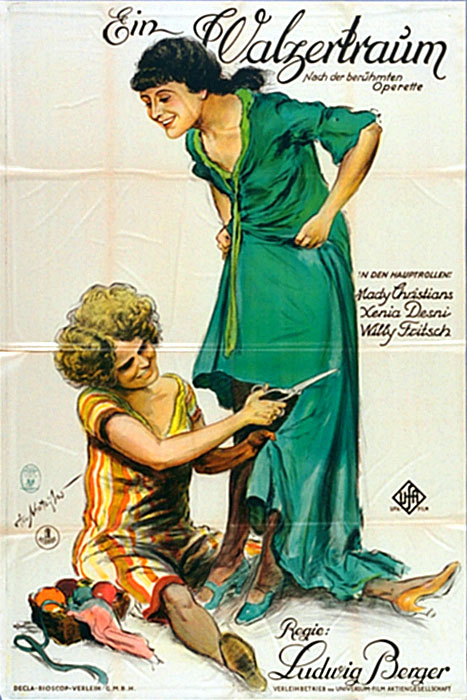
Poster for the 1925 film version of “Ein Walzertraum” designed by Theo Matejko. (Photo: Ufa)
Before Ernst Lubitsch turned the legendary Viennese operetta Ein Walzertraum – based on the novella Nux der Prinzgemahl by Hans Müller – into a delicious Hollywood screwball comedy staring Maurice Chevalier and Claudette Colbert in pre-Code 1931, there was the 1925 silent movie version by Ludwig Berger.
It is a German Ufa production, Erich Pommer acted as producer. The Straus music was adapted for screen purposes by Ernö Rapée, and the lead roles were taken by the very young Willy Fritsch as Prince Nicki, Xenia Desni played the seductive band leader Franzi, and Mady Christians was the Princess of Flausenthurn, unhappily married to Nicki.
For Fritsch, it was the breakthrough role that led to a decades long film career which included many (!) notable operetta roles, for example in Der Kongress tanzt and Die Drei von der Tankstelle, to name just a few.
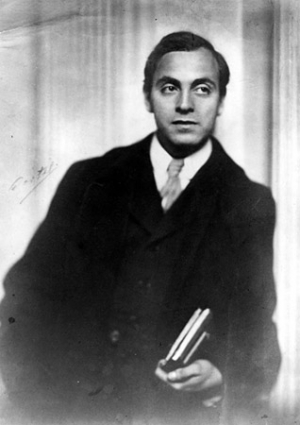
Film director Ludwig Berger. (Photo: Deutsches Filmmuseum)
Ein Walzertraum was filmed in the Ufa studios in Berlin-Tempelhof and in Neubabelsberg between July and October 1925. The outdoor scenes were filmed in Schloss Schönbrunn and in the Stadtpark of Vienna. German film censors put a “Jugendverbot” on the finished product, branding it as not suitable for minors. Which is very fitting, considering the subject matter. The world premiere was on 18 December 1925 in Berlin at the Ufa-Palast am Zoo. It was a huge success, also internationally.
That international success led to Berger receiving an invitation from Paramount in Hollywood to work there. In the USA he made the “talkie” The Vagabond King, a rather crude early adaptation of the successful Friml operetta. But he returned to Germany in the early 1930s, turning out the wonderful Ich bei Tag und du bei Nacht (1932) and the hilarious Walzerkrieg (1933), both with Fritsch in the lead roles.
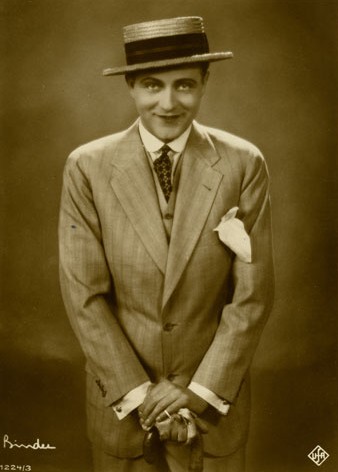
Actor Willy Fritsch in 1927. (Photo: Alexander Binder / Ross postcard no 1224/3)
In 1933 Berger escaped to France and England, where he worked on The Thief of Bagdad (1938), there is also the famous 1938 film Drei Walzer/Trois valses.
Other projects ended unsuccessfuly. Berger went on to the Netherlands with false papers and survived the German occupation there, living withdrawn and in hiding.
After 1945 he worked as a stage and screen director, also for tv. He died in 1969.
Berger’s forgotten smash hit Ein Walzertraum has now finally been restored by the Friedrich-Wilhelm-Murnau-Stiftung, Diego Ramos Rodriguez composed a new score for it (referring to Oscar Straus here and there, adding a bit of Johann Strauss, but also integrating historic Straus recordings from the 1910s to the 1940s).
This new version will premiere at the Staatstheater Mainz on 5 December 2025, there’s a second performance on 6 December, before Arte will broadcast the event on tv on 15 Dezember. Berger was born in Mainz in 1892.
For more information click here.
Also in December, the Filmmuseum München is presenting a small Oscar Straus retrospective, which includes the two famous Lubitsch films The Smiling Lieutenant and One Hour With You, the latter teaming Chevalier up with Jeanette McDonald.
Also included in the retrospektive is Max Ophüls’ La Ronde in the world premiere version of 1950. Plus Trois Valses and the 1931 revue film Wir schalten um auf Hollywood, a German/US-American production in which comedian Paul Morgan is the guide through the MGM Studios and Oscar Straus sits at the piano playing his melodies.
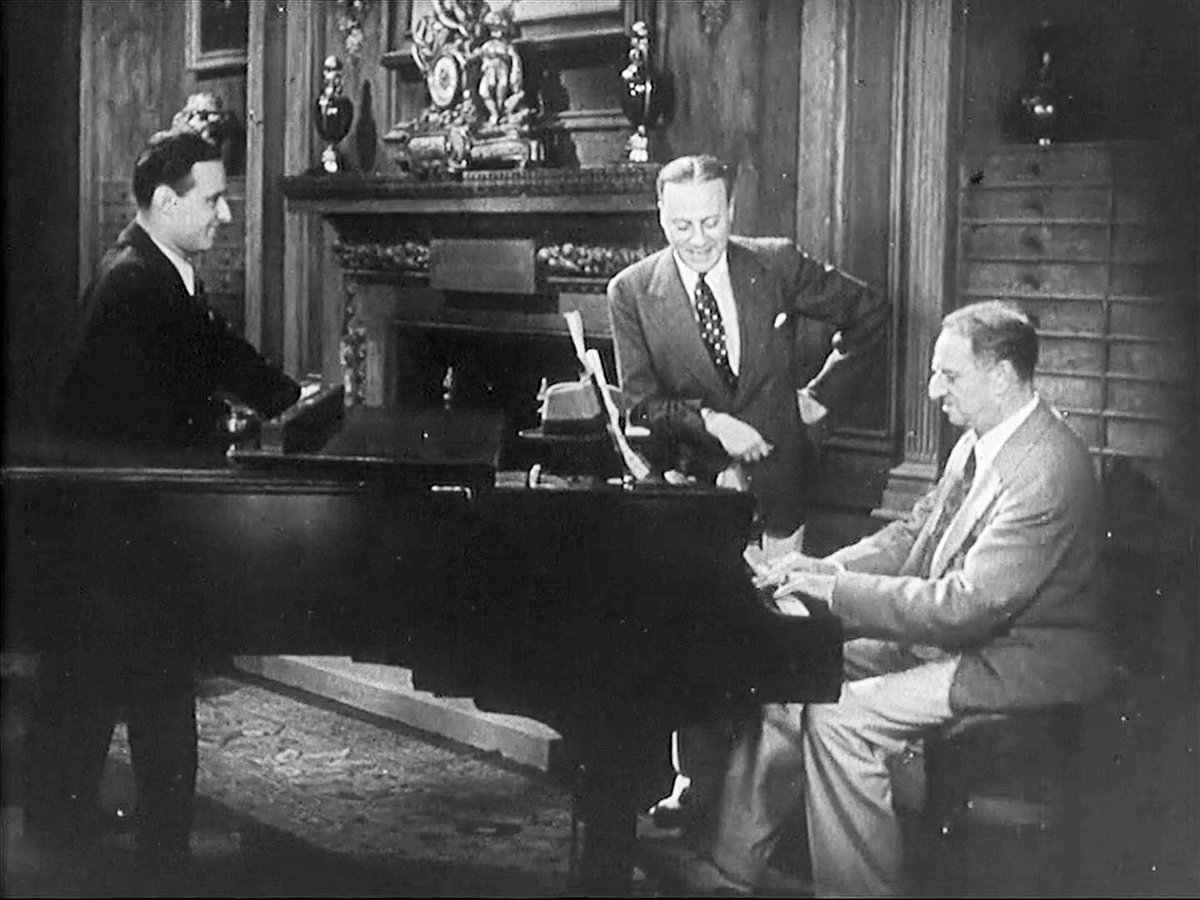
Oscar Straus at the piano with Paul Morgan next to him in “Wir schalten um auf Hollywood”. (Photo: MGM / muenchner-stadtmuseum.de)
Stars are Buster Keaton, Joan Crawford, Adolphe Menjou, Ramon Novarro and Norma Shearer. You can say MGM pulled out quite a few stops for this. They even make Crawford say a few words in German at the end!
The film premiered in June 1931 in Berlin at Capitol-Kino and in July in Vienna at Apollo-Kino.
One can consider this a Munich retrospective something of a wet dream for all Oscar Straus lovers. And it would be such a joy if all the movies could be released on DVD.
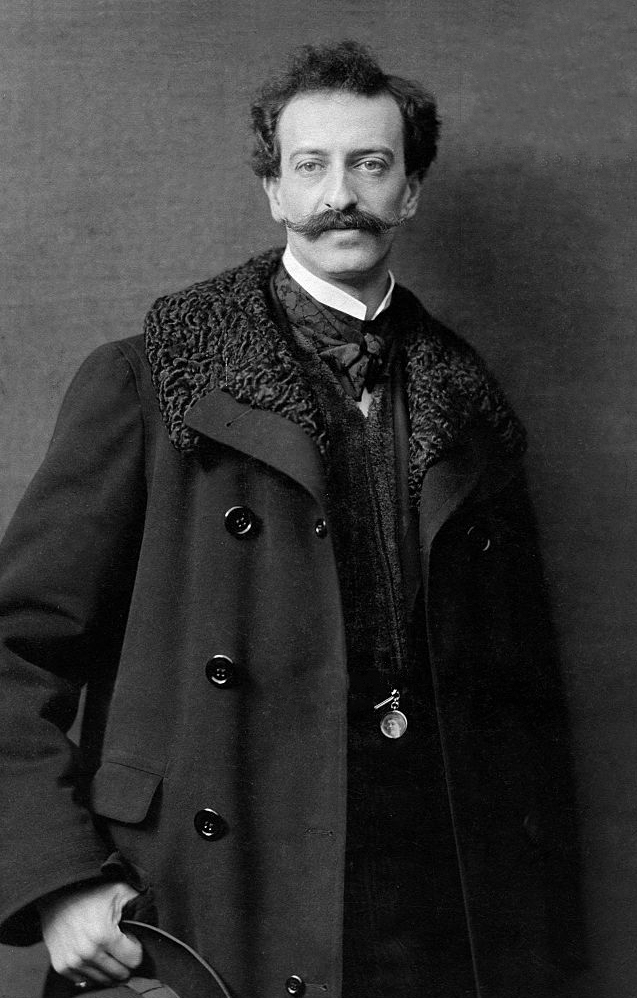
Oscar Straus, 1907.
For more information on the Munich program, click here.
